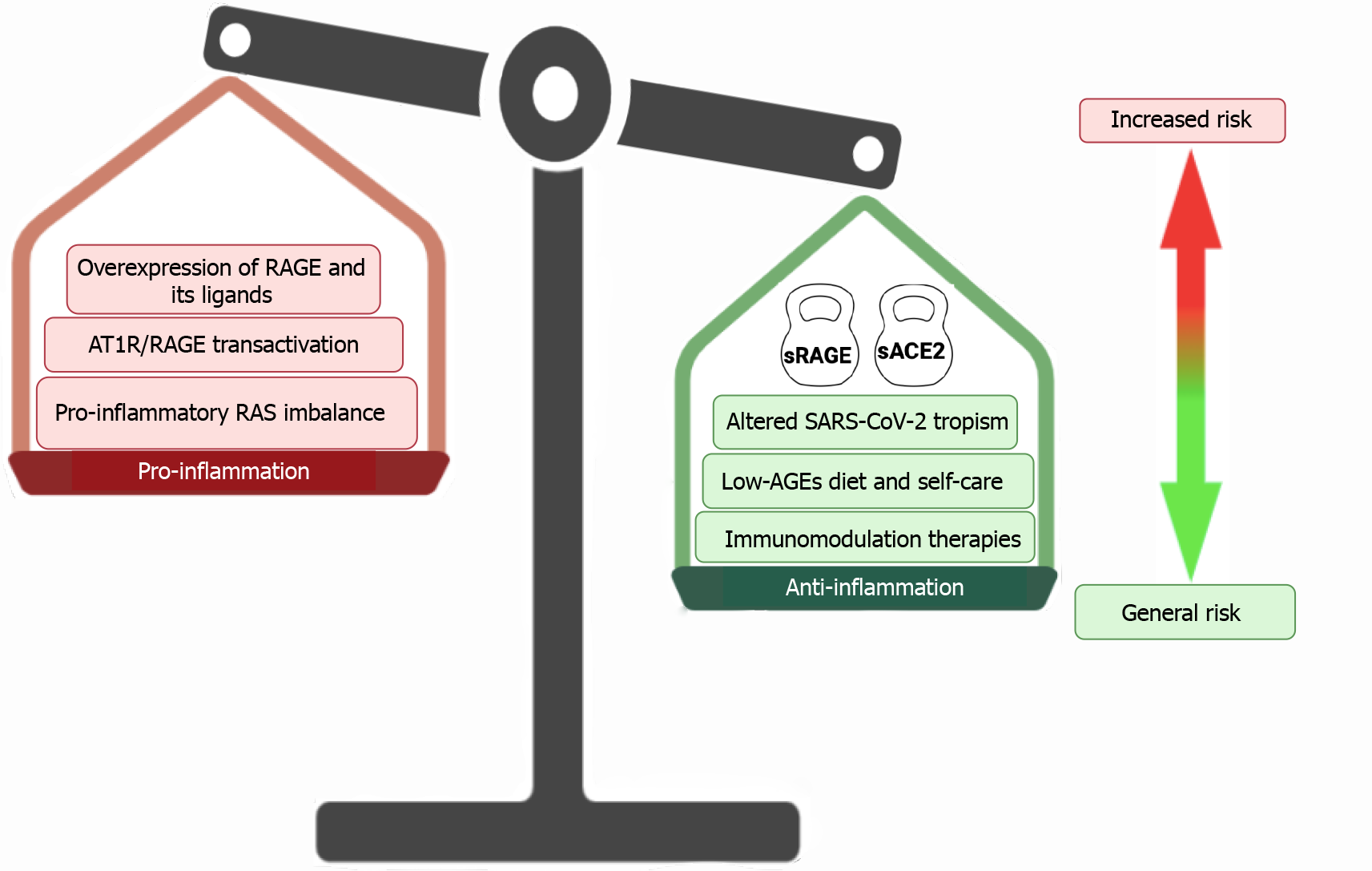Copyright
©The Author(s) 2021.
World J Gastroenterol. May 21, 2021; 27(19): 2270-2280
Published online May 21, 2021. doi: 10.3748/wjg.v27.i19.2270
Published online May 21, 2021. doi: 10.3748/wjg.v27.i19.2270
Figure 1 In inflammatory bowel diseases patients, different inflammation–prone mechanisms are known to be activated.
Among them, the overexpression of receptor for advanced glycation end-products (RAGE) and the abundance of its ligands may produce a sustained activation of the axis, which can be also fueled by a non-cognate mechanism due to the pro-inflammatory rat sarcoma imbalance. These elements seem to be crucial contributors to the worsening course of inflammatory bowel diseases (IBD) patients with coronavirus disease 2019. However, other elements may dampen these inflammatory contributions, such as the high bioavailability of the soluble forms of both RAGE and angiotensin-converting enzyme 2. Soluble angiotensin-converting enzyme 2 may even interfere with severe acute respiratory syndrome coronavirus 2 entry to epithelial cells. Additionally, most if not all IBD patients are under pharmacological treatments directed to control inflammation. IBD patients deserve special attention to their diets, and as consequence, it is likely the ingestion of dietary advanced glycation-end products is also limited. RAGE: Receptor for advanced glycation end-products; RAS: Renin-angiotensin; ACE2: Angiotensin-converting enzyme 2; SARS-CoV-2: Severe acute respiratory syndrome coronavirus 2; AT1R: Angiotensin II receptor type 1; AGEs: Advanced glycation-end products; sRAGE: Several soluble isoforms of this receptor.
- Citation: Rojas A, Schneider I, Lindner C, Gonzàlez I, Morales MA. Receptor for advanced glycation end-products axis and coronavirus disease 2019 in inflammatory bowel diseases: A dangerous liaison? World J Gastroenterol 2021; 27(19): 2270-2280
- URL: https://www.wjgnet.com/1007-9327/full/v27/i19/2270.htm
- DOI: https://dx.doi.org/10.3748/wjg.v27.i19.2270









